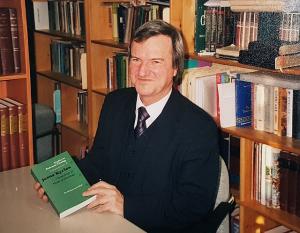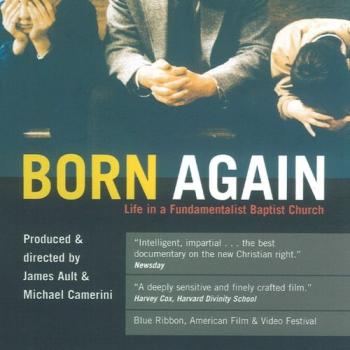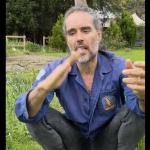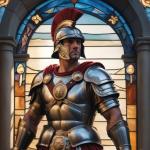“Why?” Chapter III, Parts 12 & 13 (pp. 121-169)
Thanks to those of you who are persevering with me through “Why? On Suffering, Guilt and God” by Abram van de Beek (here referred to as “vdB”). Now we turn to Chapter III in which vdB says he is going to discuss Christian views of God’s goodness, leaving behind views that take a s their starting point God’s omnipotence. (The next installment here will be about Chapter III, Parts 14 and 15 (pp. 169 to 220) and I plan to post my commentary on those parts here in about 10 days. Please read them and then wait. Thank you.)
VdB says on page 121 that “A person who has just finished reading it [the previous chapter] will have to reorient himself.” And that because, “We shall now restrict ourselves to those models in which not only sin is against the will of God, but suffering too. Unattributable to his hand, suffering has its source elsewhere.” (122)
In Part 12 vdB discusses views of sin, evil and suffering that say humans do evil: “You must not blame God for it but man.” “The universality of suffering points to the universality of human guilt.” (137) Remember, that is not necessarily (!) vdB’s view; we have yet to discover his own view. As before, he is expressing and discussing various Christian beliefs some of which he agrees with and some of which he disagrees with. And in some cases he partly agrees and partly disagrees with the view he discusses.
In this chapter vdB does explore the concepts that God deplores sin, evil, guilt and suffering and takes the initiative to lead the way out of them (but asks for our human cooperation and participation). He also explores the doctrine of original sin and its consequences. He (seems to) rejects the strong Augustinian view of original sin, that all people are born guilty of Adam’s sin, but seems to embrace a view of original sin and universal sinfulness as universal “pollution.”
VdB suggests or at least expresses the view that humanity is one corporate, collective “personality” and therefore all are spiritually broken and guilty. (148) He raises some questions about whether humans have the power to contravene God’s will and ends the part, as usual, with a rather homiletical and pastoral suggestion: “How can man possibly pose this deed [evil]? But as before we can only proceed after a long pause in our thinking. We can only proceed if we ourselves thoroughly realize our own responsibility in the matter of evil. And if we then proceed, we can only proceed cautiously, afraid to go too fast, thus covering up the real evil we commit.” (149-150)
Before proceeding to Part 13: God’s Permission, I want to pause and say that I agree with the view expressed by vdB in Part 12, whether he does or not. This is my view of the origin and responsibility for evil and innocent suffering. I hope it is his, too. We’ll see. I really liked the section (pp. 139-142) about God’s leading the way out of the mess we have created into a new future. On page 142 vdB sounds Arminian! “God has taken away the paralysis of sin in order that we should forgive…and remove the barriers which keep us from going into the future together.” That sounds like the Arminian view of “prevenient grace.”
I also agree, for the most part, with Part 13 “God’s Permission.” Here is an excellent example of what I have warned readers about. After explaining the many reasons theologians such as John Calvin have given for rejecting the explanation of evil and suffering by appeal to God’s permission, vdB says “though I am not enthusiastic about the stereotypical way in which…the idea is used, I want to argue for it.” (154) Up until then, in this part, it would SEEM that he is arguing against it. But he was then only expressing and explaining a view not his own!
VdB says that “God gives space to man” to go against his, God’s, will. (161) But he rejects process theology. VdB argues (and this now does seem to be his view) that God’s love must permit his loved one, the human, to do what he, God, does not will. He discusses the idea of “kenosis”—self-emptying, not only in Christology but also with regard to God’s creation of another than himself. “The power to relinquish omnipotence is greater than the power compulsively to cling to power.” (164)
As this is getting longish, I am going to skip to the end of this part where, in typical fashion, for him, vdB offers words of homiletical and pastoral care: “To this dust [humanity] he [God] gave space and allowed it to overrule him; he left it room in the wrath of his love and the love of his wrath.” (169) That sounds dialectical, but expresses the mystery of God’s way with us.
Now, overall and in general I agree with the views vdB expresses and explains in these chapters and was and am gratified to read a thoroughly Reformed theologian saying these things. Before reading vdB, I had already read his mentor’s magnum opus, Hendrikus Berkhof’s “Christian Theology.” Berkhof, a theologian of the Dutch Reformed Church, talks of the “defenseless superior power” of God.
*Note: This blog post invites response from readers who are reading vdB with me and who have read these two parts. Others may ask questions. All comments, as always, should be relatively brief (no more than 100 words), on topic, addressed to me, civil and respectful (not hostile or argumentative), and devoid of pictures or links.*
















